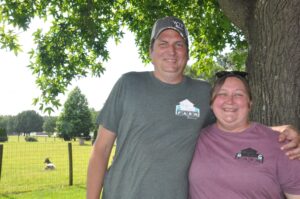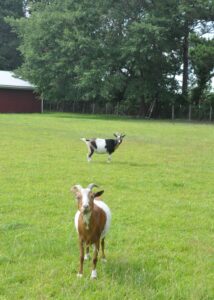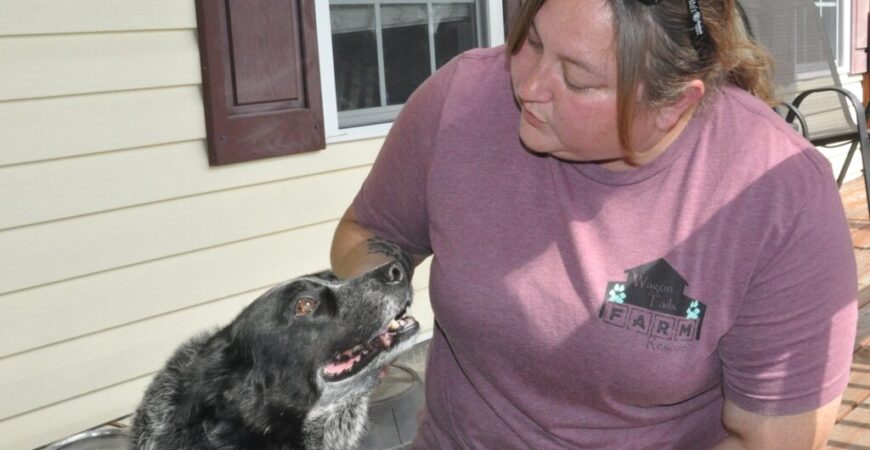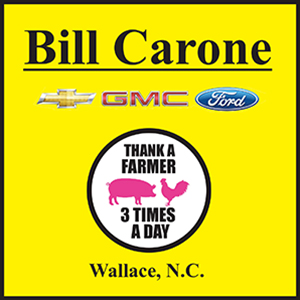Wagon Tails Farm Rescue may be based on a farm outside Beulaville, but the organization’s reach is felt by dogs, cats, goats, ducks and even reptiles from all over North Carolina, and even as far as West Virginia, Maryland and New York.
“People definitely think we’re a shelter a lot of times,” said executive director and founder Geri Romain. “We are foster-based, so every animal in our rescue is in somebody’s home. We do not have a brick and mortar [building], so to say. There are no kennels.”
The animals that come to Wagon Tails mostly come from shelters in eastern North Carolina, but there are also some that come from other states that Geri and her husband Steve find through connections they’ve made over the years. The animals will stay in a foster home until they can find their forever home.
“Really and truly, the rescue runs off of volunteers who are willing to take in animals,” Geri said. “They get to know them and train them, and learn all they can about them before we put them into a forever home.”
The animals come from shelters, although sometimes they are strays that are taken in locally. However, Geri pointed out, “Legally, the shelter is who needs to be notified. Because when you find a stray animal, it’s not just take it in and find it a home. You need to call the shelter and do the due diligence and find the owner, but if you can’t, then that’s when we step in and do what we can to find them a home.”

The Romains are originally from Ohio, and started the rescue soon after they moved to the area in 2018. They started out serving as fosters for the Australian Cattle Dog Rescue Association, but then it grew to include all kinds of dogs and other animals. “We started to open our eyes to what was going on down here,” Geri said. “Just how bad overpopulation is, and all the loose dogs and cats.”
When Covid hit, Geri said they thought they were through with the rescue business. However, the pandemic had the opposite effect of what they expected. “We had an influx of foster homes that wanted to help while they had the time, and we were able to take in a bunch of animals,” she said. “It kind of gave us a boilerplate to start with, and that’s when we were able to add people from out of state.”
The first year, Wagon Tails took in five animals. Last year, they took in 200 and found homes for 180 of them. Since 2018, they’ve helped nearly 500 animals find their forever families.
“It’s been unexpected but great,” Steve said, adding that their personal home has become “a land of misfit toys,” since they’ve taken in some animals that could not find homes, for whatever reason.
“We can never have enough [foster families],” Geri said. “The more fosters we have, the more animals we can save and place.”
Most individuals who want to foster an animal already have pets, but there are those who might be thinking of adopting a dog, for example, but aren’t sure they’re ready for it. By fostering a dog, they can help the dog and also help themselves decide if a dog is right for them, Steve said.

When it comes to finding fosters, Geri said the criteria is actually pretty simple. “We’re really looking for somebody who wants to do good, and knows that they’re going to be able to give that animal exposure to different things,” she said. “Like, people or other animals or going out in public for other dogs. Somebody who’s passionate about it. Not somebody who’s going to be like, ‘Oh, I work 14 hours a day, so I might let it out for an hour or two.’ Anybody who’s dedicated. Somebody who wants to help make a difference.”
“It really doesn’t matter where you are or where you’re from; everybody can make a difference,” she added.
Those interested in applying to be a foster can visit the website, wagontails.org.
Wagon Tails will be hosting its inaugural Woof Stock at the Farm Sept. 28, with food and beverage vendors, and a chance for the public to meet some of the animals that are part of the rescue. Further details will be announced as the event draws closer.
 Twitter
Twitter Facebook
Facebook Instagram
Instagram






